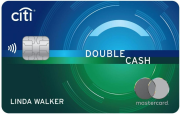The content on this page is accurate as of the posting date; however, some of the offers mentioned may have expired.

Very often consumers with limited credit score ask why they receive multiple denials and what can be done about that. The problem is frequent and needs some detailed coverage, which is presented in a number of the most popular questions and answers to them.
Why can my credit card application be denied?
When the bank is considering your application for a credit card or a loan, you are evaluated as a risk or no risk for a bank. In other words, the bank uses your credit history and score to decide whether you will pay back the credit issued to you or not. If you meet the bank's requirements, you will be approved for the plastic. If your payment history does not seem to match the bank's requirements, the bank has a right to send you a denial.
Major reasons for credit card denials are related to your payments behavior and current state of your debts and accounts. You can be refused due to:
- Your credit card application misses some information or contains some mistakes. It is an especially grave disadvantage if you indicated incorrect information about your credit history or address - the bank can suppose that you are hiding something. Be attentive while filling out application forms.
- You have a number of delinquencies in your credit report like late payments, neglected debts, bankruptcy and the like. Check out your reports before applying for a bank product, in order to remove possible mistakes.
- The report shows too many inquiries, especially denials. Even 4 - 5 inquiries in half a year can be considered as excessive credit activity. So, avoid applying for credit cards frequently and watch out for identity theft. It should be pointed out that inquiries for such things as auto loan or mortgage are looked at as one inquiry.
- Some credit reports can contain errors, like typing mistakes or confusing your birth date and name. Look through your credit files to find out those mistakes, as they can present you as a shady person in the eyes of a bank.
- You credit records can seem insufficient for a bank. There can be little or no information about credit cards or auto loans or the amount of credit you have. To improve this feature, you should, for example, avoid closing credit card accounts, especially the old ones, so that the bank could see you have been using credit for a long time.
Be sure that such information as you race, sex, national origin, religious beliefs, or age (unless you are under 18) cannot be the grounds for a denial. The source of your income be it alimony, salary, grant, public assistance etc does not matter as well.
What should I do if I got a denial?
If you receive a denial, the bank should send you a latter and explain the reasons for refusal, like too low income or insufficient credit score (indicating the credit bureau providing your credit score). In case no explanation was given by bank, you have a right to demand it.
What measures can be taken to prevent further denials?
First of all, stop making applications. Get your credit reports from major credit reporting agencies and look them through. Dispute all the incorrect items and pay off the old debts if you have them. In case you became a victim of ID theft, inform the credit bureau and about that and follow their instructions to remove the items initiated by an identity thieve.
Learn your credit score and apply for a credit card that is specially designed for your credit history. Being approved for a credit card, show a reliable credit behavior for a number of months. Acting reasonably, you will be able to build a good credit history and obtain high eligibility.





